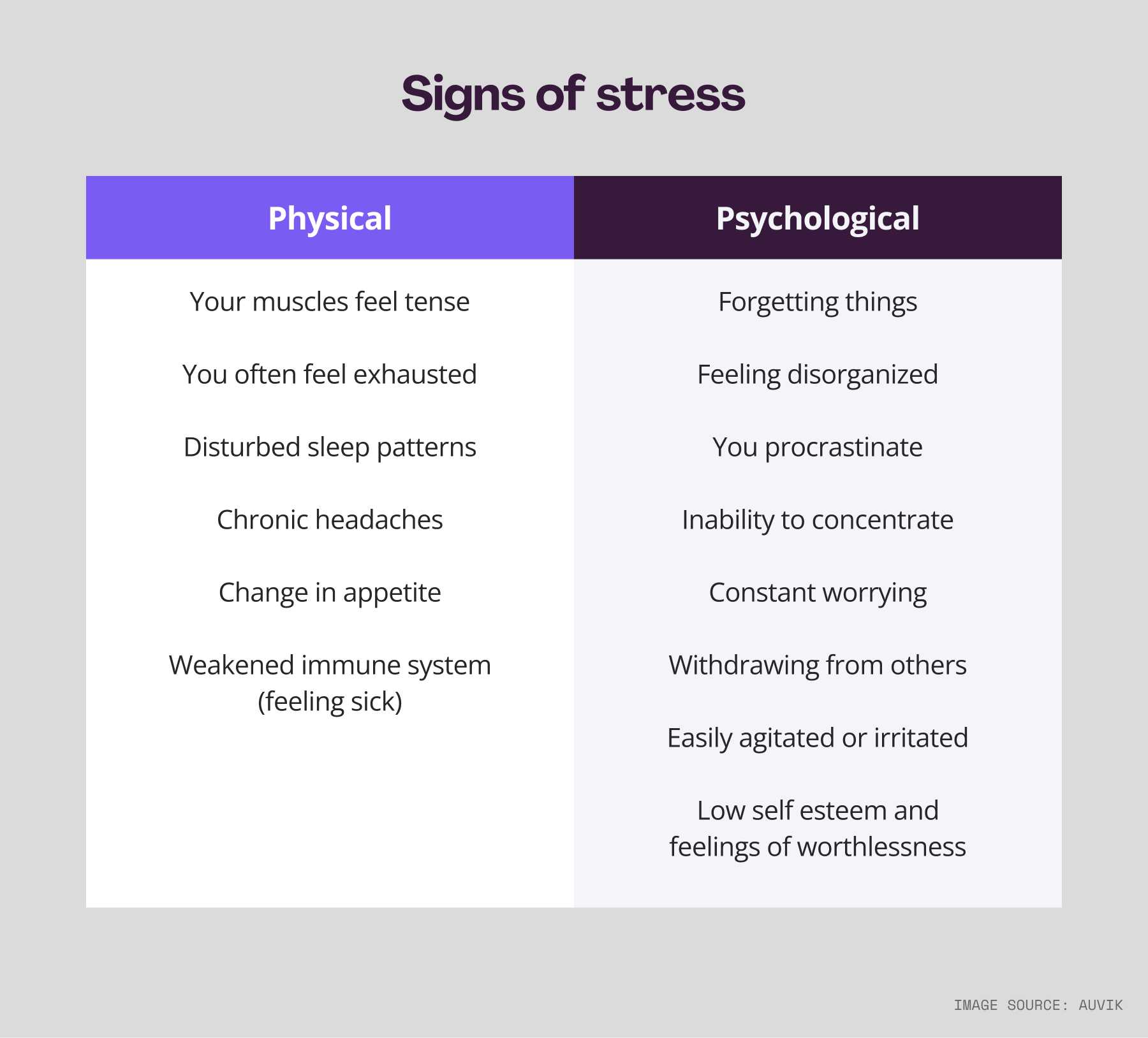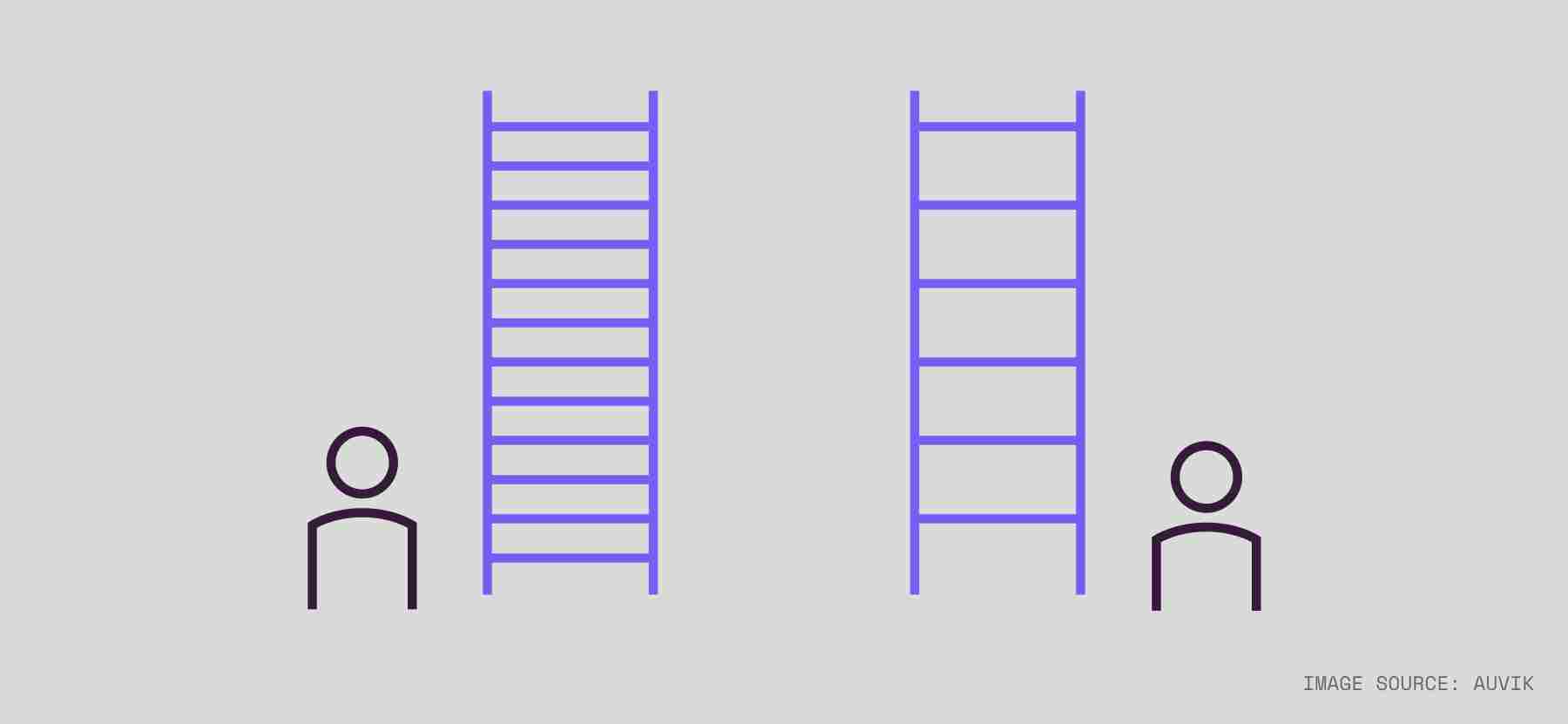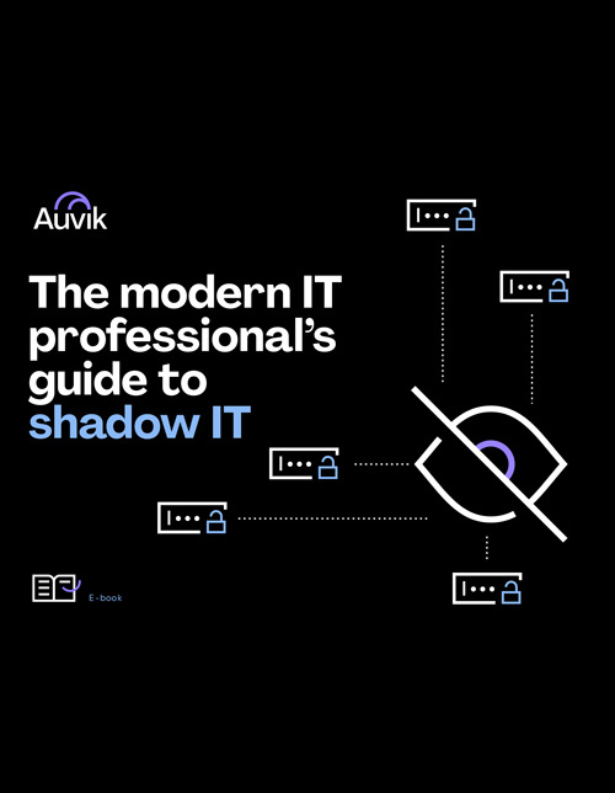Aches in your back and neck? Clutter eating up your desktop and desk’s top? Feeling so absorbed in your to-do list that you forget to breathe? You could be suffering from IT job stress. And you’re not alone! Let’s look at ways to identify stress before it gets to be too much, and some helpful tips for letting it go.
What is IT job stress?
Dealing with workplace stress isn’t easy. One study reports that as many as 83% of American workers experience stress related to their jobs, and 39% of employees said their stress was due to workload. With IT professionals still maintaining heavy work weeks, as we’ve documented in our Network Field Report, it’s unsurprising that many find their jobs stressful from time to time.
Signs of stress
Stress manifests in different ways for different people. There are physical and psychological symptoms, and you may feel more of one or the other, or a mix of both. Easily recognizable signs include tense muscles, headaches, constant worrying, and feelings of frustration, but there are other, more subtle signs as well.

When we’re feeling stressed, whether it’s specific IT job stress or due to anything else, our brain activates our sympathetic nervous system. This is the “fight or flight” response, and we aren’t meant to maintain it for long periods of time. To counteract it, we should focus on activating our parasympathetic nervous system, or the “rest and digest” response, which is a natural, relaxed state.
So let’s go over a few ways to curb that stress using small, healthy, daily habits.
1. Step away from the desk
This may seem straightforward, but it can be very difficult to do. If you’re used to constantly monitoring, troubleshooting, and responding to IT crises, you may feel you don’t have time to take a break. Especially if your habits during COVID have morphed into a day of internet surfing at work, followed by a night of more internet surfing!
However, everyone needs to get up occasionally. You may need to refill your drink, or take a trip to the washroom. Those small breaks are a great opportunity to work in healthy habits. You could:
- Stretch your legs by visiting the washroom farthest from you, rather than the closest (if it’s not an emergency!)
- Practice chair yoga by incorporating a few poses while you read logs
- Do a few squats or other low-impact exercises whenever you get out of your chair
It may seem daunting to start a new habit, but every small change helps. One philosophy referenced in the practice of yoga is samskara:
“every action, intent or preparation by an individual leaves a samskara (impression, impact, imprint) in the deeper structure of the person’s mind.”
Would you rather start exercising by doing five minutes every day, or an hour five times a week? How about this: would it be easier to climb a ten-foot ladder with a rung placed every three feet, or every foot? Changing your habits follows this method. Start with small, manageable, changes. These are more attainable than a big leap.

Even the smallest positive change, as frequently as you can manage to make it, will eventually create a beneficial outcome.
If you’re trying to manage IT job stress, you may need this little boost.
2. Breathe!
Speaking of small habits, have you paid attention to your breathing lately? If you spend a lot of time screen-bound, you may suffer from screen apnea: the very real issue of forgetting to breathe while looking at your device. Not only is this unhealthy, but it can be contributing to your stress levels.
Shallow breathing or holding your breath activates the sympathetic nervous system (that’s the one we don’t want to use). Calm, deep breathing can awaken the parasympathetic nervous system, relaxing the body. So when we recommend breathing, it’s not just that you should breathe more. You’ll also want to be conscious of the pace of your breath.
Try this easy 4-7-8 breathing method to kick-start mindful breathing patterns:
- Inhale through your nose for a count of four.
- Hold your breath in for a count of seven.
- Exhale deeply, breathing out for a count of eight.
This can help you relax quickly, and it doesn’t need to be repeated (but you can try up to four times in a row if you really need a boost).
3. Have a mindful mindset
Mindfulness, like attention to breathing, is another relaxation technique worth considering. It doesn’t have to be complicated: mindfulness simply means being aware of your thoughts.
Many who practice mindfulness daily use meditation as a tool. Meditating is a great way to take time to acknowledge your thoughts. But IT pros dealing with job stress have habitualized themselves to not want to take even 5 minutes away from their to-do list. That’s understandable! Like every tip on this list, we have suggestions for smaller, easier ways to incorporate mindfulness into your day:
- If you feel an ache or pain, stop. Take a moment to identify what’s causing it. Breathe deeply, perhaps using the 4-7-8 method above.
- If you are staring at a screen for most of your day, grab a small note (physical or virtual!) and write a quick positive message for yourself. Place it where you will see it at least once a day, and read it as often as you can.
- Keep a quote you like, or a simple reminder to pause and breathe, as your desktop background.

As long as you start taking even a few seconds at a time to pay attention to what you’re thinking and feeling, you’re already on the path to an eventual goal of spending a few minutes meditating, and fewer minutes stressing.
4. List accomplishments, not just to-do’s
This tip may be a little tougher to remember, but the payoff is big. You know that to-do list you leave on your notepad, in your planner, or as a word doc on your laptop? Break it in half. What that means is, have a section where you list what you need to do, of course, but add a section for accomplishments.
You can take two approaches to this: first, you can move tasks you complete from the “to-do” to the “completed” section, or second, you can list them independently. Personally, I’d recommend the second method, because it puts less pressure on you to cross off big items, and instead, celebrates whatever you consider to be an accomplishment. It doesn’t matter what part of the team you are, we all have goals. If you prefer to celebrate specifically getting things done, that’s fine, but some days you may deserve kudos just for making it to the computer to do your job, and that’s fine too.
5. Remember, you are not alone
Are you having one of those “can’t get out of bed” days? This tip is for you. If you’re feeling stressed, abandoned, or burdened… don’t be afraid to reach out. IT job stress is more common than you think. You may have a friend, coworker, or family member with experience feeling the same. Community is a great resource, not just for advice like this article, but also for empathy.
There are social media groups for self help, self care, and wellness as places to find support. If you take a few moments to see how others are dealing with similar feelings, you might find some weight is lifted. Feel free to share this article to start a conversation, too.
October 10th is World Mental Health Day, which was one of the reasons we wanted to share this now. If you think you might need help, try not to be afraid or embarrassed to talk to your friends, your family, or your healthcare provider. The World Health Organization has a dedicated portal to mental health issues, that can also provide you with more specific information.
Take some time and be kind to yourself!
Whether you’re feeling stressed out right now, or you’re just looking to start healthy habits before the stress sets in, do your best, for you. It’s okay if you can’t do everything in this post, and it’s even okay if you only do one or two of these things, some of the time. A little self care is by far better than none at all.
In the stress-heavy world of IT, we can get absorbed in our screens, our code, and our calls. Don’t let what can be a fun, rewarding, and challenging job become a source of struggle and frustration all the time. With small changes, one step and one rung of the ladder at a time, you can manage your IT job stress and have a happy, fulfilling career.





